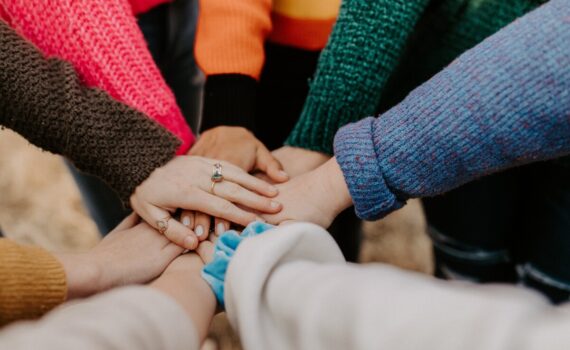Teamwork
Category : PROspective
As we begin a new semester, we are preparing to dust off many skills we haven’t put to good use in a while. So, this week, we wanted to take a look back at an article which reflects on one of these skills – teamwork – which we may find looks a little different in our classes and jobs this year as we navigate a new, in-person setting.
In your coursework at Rollins, you will often be asked to complete group work either in the form of larger projects or smaller discussion groups. After Rollins, being able to enhance the work of a team will be an invaluable skillset in the professional setting. Epidemiology is a field that needs to communicate effectively with other science fields, policy makers and the public to gain support for recommendations. Collaborative relationships are necessary for success and in public health, success means saving lives and increasing quality of life.
-Introduction by Alex Whicker
Originally published on October 18, 2020 by Dr. Jodie Guest:
When I think of teamwork, I think of the African Proverb:
“If you want to go quickly, go alone. If you want to go far, go together.”
While group assignments are not always met with excitement, they are a great way to practice teamwork and flex skills that help everyone succeed. Teamwork is everyone’s responsibility and will be an important skill in your career. Some important traits that I seek out in good team members include accountability, commitment, flexibility and optimism.
Accountability and commitment
Every individual on a team has an enormous effect on a team’s dynamic and its performance. While a leader might seem like the person who can solely guide a team to success, I believe each member plays a significant role in deciding how the team will function. It does not take many team members to lead a talented group towards dysfunction. Individuals are ultimately responsible for deciding whether the team will be stymied by this dysfunction or will hold each other and themselves accountable to being functional and high performing.
This commitment to high standards can be coached, but a team is so much more effective if this comes from each individual in a team. You want team members who are committed to the goal and to each other. This commitment includes supporting each other. When others need help, every team member should be aware of those needs and willing to provide their support. This commitment to each other is an essential ingredient in successful teams.
Flexibility and optimism
Team members also need to be flexible. When talented individuals with different approaches, ideas, and skills are brought together on a team, some conflict will be inevitable. The most effective teams have members who actively seek out and include others in making key decisions and solving problems creatively. They understand that having a diversity of opinions leads to optimal solutions and that you need to listen to these ideas and experiences of others because they will stretch you, challenge you, and call on you to empathize. In that context, disagreement is a blessing, not a curse. If you truly value the opinions and input of others, your team will benefit as a whole, and each member will grow.
I also believe successful teams approach the team’s goals and the future optimistically. Optimism tends to lead to more energy about a project and is an approach that feeds connection and commitment. It is much easier to be committed to a team that is forward thinking, flexible in opinion, and filled with the expectation of good work together.
Teamwork in action
It is certainly true that teamwork is not always easier than working alone, but the benefits of a connected and hardworking team can be immense. The next time you are part of a team, consider how you engage to support teammates and the goals of the team. Practice being the teammate you want to have. Connect, support, listen, encourage and motivate each other. These skills will serve you well both in school and in your career.
This article was originally posted on October 18, 2020. The original can be viewed here.
Featured Image by Hannah Busing on Unsplash
